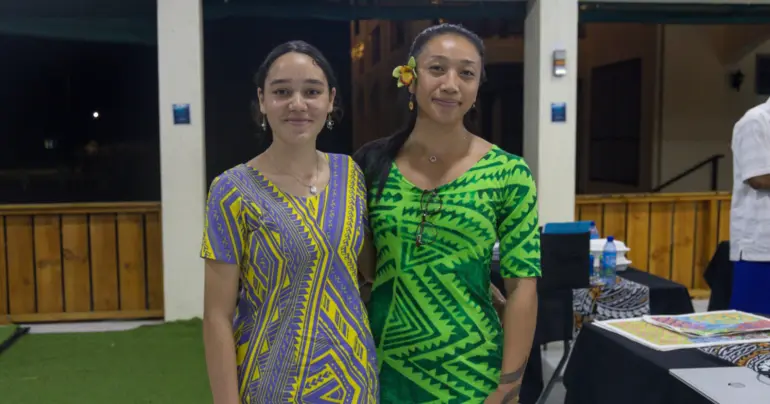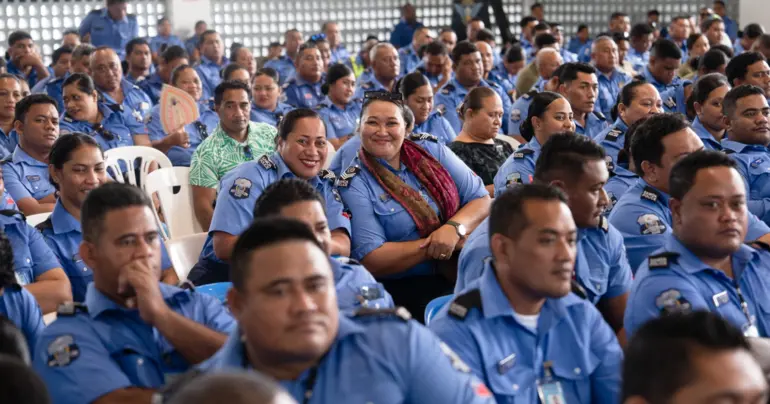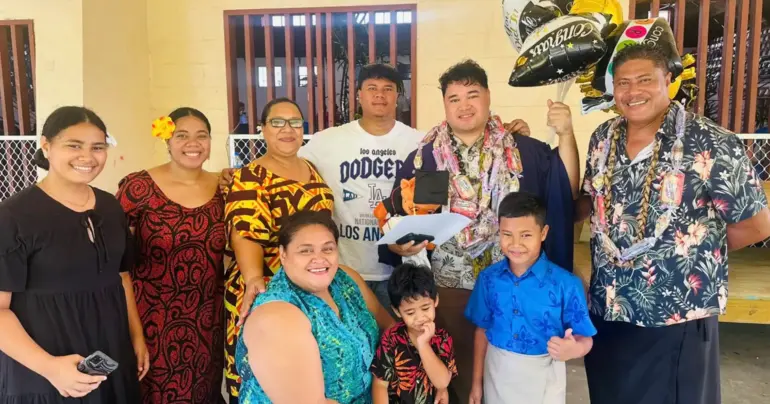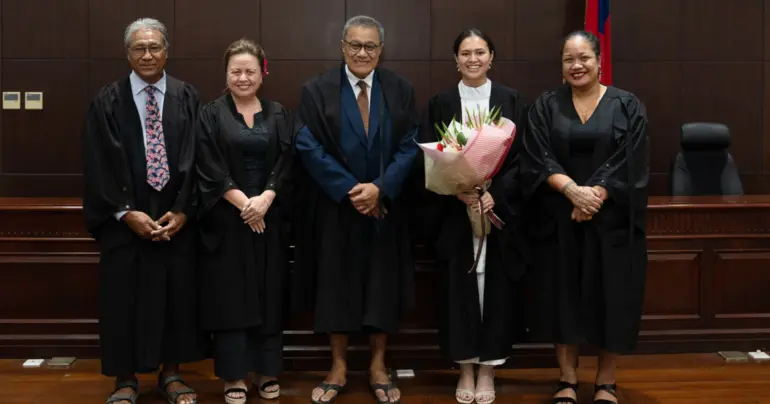Fiame’s exit tradition and democracy in action: academic
Fiame Naomi Mata’afa’s resignation reflects the coexistence of democratic freedom of choice and chiefly obligations in Samoan politics, an expert in Samoan studies says.
Okenaisa Fauolo-Manila, Director of the Samoan Studies Institute at the American Samoa Community College (A.S.C.C.) said Fiame’s case was a mix of two traditions: fa’aSamoa (the Samoan way) and democracy.
Fiame resigned after leading her constituency of Lotofaga to express its criticism of proposed Government bills at a consultation session held by a Special Parliamentary Committee.
Mrs. Fauolo-Manila has taught at A.S.C.C. for more than 20 years.
She offered her analysis of Fiame’s resignation in response to questions from the Samoa Observer.
“The resignation of the Deputy Prime Minister of Samoa is a testament to democratic principles and the form of Governments we have, especially when it is the exercising of one’s freedom to choose,” she said.
“It may be shocking to many due to how having political parties [...] running Governments seemed to be the “norm” for Samoa.
“To break away from a long-staying political party seemed uncharacteristic to some people. But really, there are processes in place [... for] electing and withdrawing [candidates which] are being put into use.”
Born and raised in Samoa, Mrs. Fauolo-Manila is a graduate of Waikato University in New Zealand.
But Fiame’s resignation also highlights the roles and responsibilities of matai (chiefs), regardless of gender or position, she said.
“In my humble opinion, this is an excellent case of highlighting the roles and responsibilities of a matai, regardless of gender or position,” she said.
“One is to protect and ensure the continuity of family heritage. It is empowering to many people and it does reiterate that Samoan women are respected in the fabric of fa’asamoa”.
“There is that perception of women being less represented in our society. But I differ: Samoan women are culturally respected.”
One of the challenges in teaching Pacific history and geography, she notes, are the dynamic relationship between traditions and modernity.
She cites as a classic example of Fiame resigning from Deputy Prime Minister and the ruling Human Rights Protection Party (H.R.P.P.).
“For American Samoa as an illustration – finding that middle ground and making the best of both worlds such as being an American and being a Samoan can be challenging,” she said.
“But history has made way to having American Samoa in existence for more than 100 years. Yet it is a territory that is rooted in its ancient story of being Samoa, a God-given appointment.”
The issues behind Fiame’s choice to resign, particularly her opposition to the pending Lands and Titles Courts (L.T.C.) Bills have brought our fa’aSamoa to the forefront, she said.
“We understand Samoa and American Samoa have different forms of Government, yet we are the same culturally speaking.
“Our fa’asamoa has come to the forefront that despite the rifts and changes, it is the respect of a good leader, a long serving matai, a renowned public servant whom we revered.
“I am reminded of our Samoan saying “o le fuata ma lona lou” (every crop has its post) and Samoans are known for their adaptive nature to the tides of change.”
Mrs. Fauolo-Manila said that modernity presented a challenge to Samoan tradition but one that Samoan culture has shown itself capable of adapting to.
“All in all, we continue to [make Samoan] external forces to match and make sense to our society.
“If there are any implications of the Deputy Prime Minister’s resignation to the Pacific, it is reaffirmation of our region’s ongoing refining of who we are as islanders.”
Mrs. Fauolo-Manila has held the role of director at S.S.I. since 2007. Previously, she served as Social Sciences Department Chair, from 2001 to 2007.
Asked who would make a great successor to Fiame, Fauolo-Manila said it has to be someone who loves Samoa.
“I don’t know, but it has to be someone who loves Samoa and can foresee Samoa still intact for another 60 years of independence,” she said.
“The leaders that stood out in history are those who are passionate for their people. At the end of the day, there is love and harmony – not the laws or politics. What matters the most are the many people who are living in peace and [are] free.”











